The No. 1 marketing ‘secret’ for multifamily investment
The first focus for any commercial real estate broker when taking on a listing should be pricing properties correctly in order to not miss out on the serious buyers.
The right price is determined by many factors, including of course the asset itself (size, location, comparable other assets available or recently traded), but most importantly on cash flow and the available financing.
While the cash flow is more or less in the hands of the ownership group (maximizing prior to sale), the available loan is always in the hands of then-current economic factors.
In a seller’s market, based on our experience there will be three to five perfect buyers. In a buyer’s market this number drops. Mispricing a property means missing out on these top buyers – investors who should own the building based on their investment criteria and current portfolio.
The difference in pricing from the top buyers to the next group (second-tier, second-best buyers) will be over five to 10 per cent. The third tier of buyers will be even lower.
Why the correct price matters
For example, if a property is worth between $5 million to $5.1 million and is on the market asking $5.15 million, the serious offers will be submitted in the range of the asking price, plus or minus a few percentage points.
Going to market asking $5.5 million or higher means the otherwise interested buyers would not even make an offer – they believe the price discrepancy is too great to warrant the time they would spend running the numbers and going into a due diligence process.
All investors start by doing a quick calculation as to cap rate and price per unit and if this differs significantly, they will disqualify the asset and their interest for the time being.
Now the only attention the listing will get will be from opportunistic buyers waiting for the price to drop into the range of $4.5 million to $4.75 million – or even lower.
The top and logical buyers have already skipped on the listing, as it was overpriced.
The larger the gap between the asking price and the real price the market affords, the worse will be the results for the seller.
In the best-case scenario, the listing will expire.
In the worst-case scenario the seller will tie up the building with an opportunistic buyer who will “nibble” on the deal as they go along, renegotiating at every step, asking for a long due diligence process and wasting everybody’s precious time.
These buyers often have several buildings “tied up” at any given time by simply placing a refundable deposit. They will only close on the one deal they get at their target price and drop the rest.
Hence, sellers should go to market priced correctly – based on then-current market pricing – or skip going to market altogether (hold the asset and focus on increasing the NOI).
2022 multifamily investment recap for Greater Montreal
In 2022 we witnessed a major drop in transactions during the second half of the year. Both the number of transactions and volume dropped 60 per cent in Greater Montreal during the second half of 2022.
Sellers were holding on to outdated pricing, and buyers stopped buying in the higher-interest-rate environment.
Real estate in 2023 is still expected to be a popular choice for investors.
No one really knows where interest rates will be (judging by the behaviour of the world’s central bankers, it seems they don’t know either), yet despite this uncertainty many investors are still looking to multifamily and rental real estate to generate their passive income and build wealth.
If you are a seller in today’s environment, you will sell as long as the asking price is in line with today’s market.
If you are not yet ready, it is best to hold the asset rather than “trying” the market (i.e. listing at the price you want to achieve if this is significantly higher than market prices).
Baron Realty specializes in matching buyers and sellers of apartment buildings. The author, Mikael Kurkdjian works in partnership with Ramona Ursu and a team of real estate professionals to bring the best boutique-brokerage services to the apartment transactional space in Ontario and Quebec.



